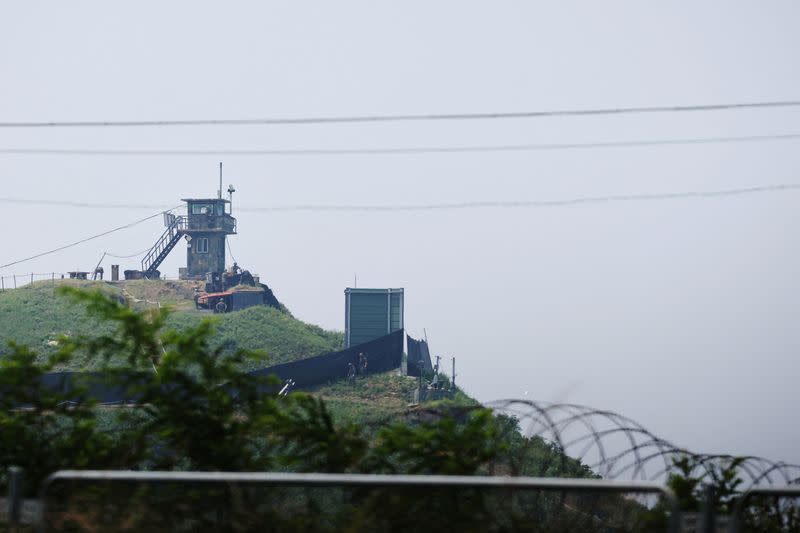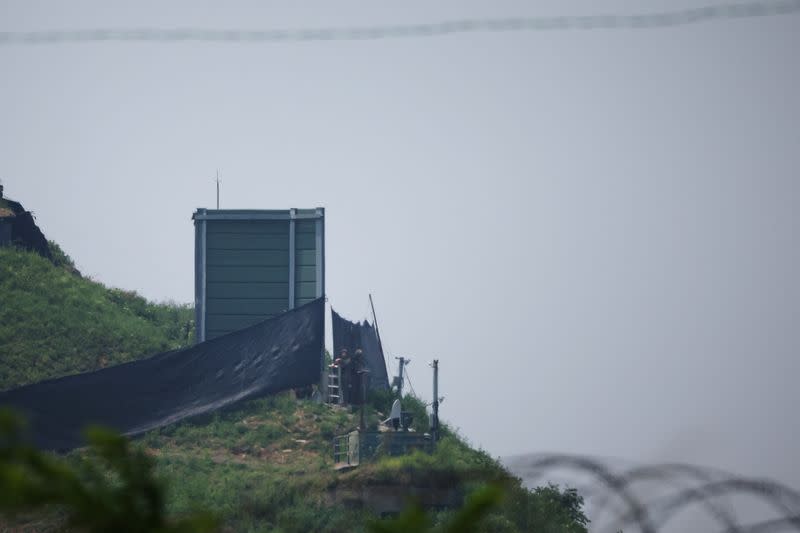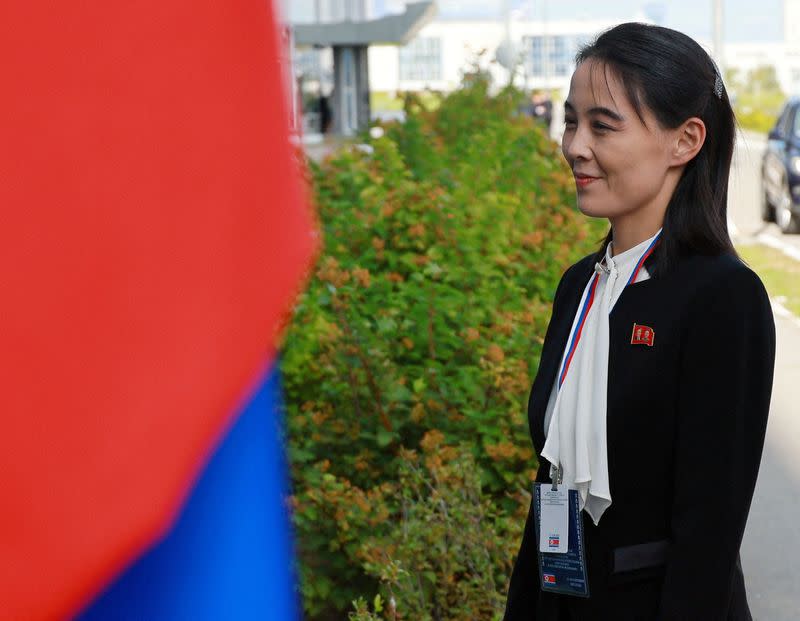North Korea warns of new response against South Korean loudspeakers, leaflets
By Ju-min Park and Josh Smith
SEOUL (Reuters) - The influential sister of North Korean leader Kim Jong Un warned of a new response against South Korea if the South continued with loudspeaker broadcasts and allowing leaflet balloon flights amid simmering tensions.
"If the ROK simultaneously carries out the leaflet scattering and loudspeaker broadcasting provocation over the border, it will undoubtedly witness the new counteraction of the DPRK," Kim Yo Jong said in a statement late on Sunday carried by state news agency KCNA, using the official names of South and North Korea.
South Korea resumed loudspeaker broadcasts directed at North Korea on Sunday, its military said, following through on a warning that it would do so if Pyongyang kept sending balloons carrying trash into the South.
Signs that North Korea was installing its own loudspeakers have been detected, the Joint Chiefs of Staff said, adding that South Korea does not plan to operate its loudspeakers on Monday.
North Korea on Saturday launched about 330 balloons with trash attached; about 80 of them landed over the border, South Korea's military said. On Monday South Korea said a further 310 balloons had been launched, with about 50 landing in the South.
"This is a prelude to a very dangerous situation," said Kim, a vice department director in the ruling Workers' Party, referring to the South's loudspeaker broadcasts.
Kim said North Korea had sent 1,400 balloons over the border from the night of June 8 to the dawn of June 9.
Pyongyang started sending balloons carrying trash and fertilizer, including possible manure, across the border in May, calling it retaliation for anti-North leaflets flown by South Korean activists as part of a propaganda campaign.
"Seoul does not want military tension at the inter-Korean border, and Pyongyang does not want outside information threatening the legitimacy of the Kim regime," said Leif-Eric Easley, a professor at Ewha University in Seoul. "For both sides, ‘escalating to deescalate’ is a risky proposition."
The U.S.-led United Nations Command (UNC), which oversees the armistice that established the Demilitarized Zone between the two Koreas as fighting ended in the 1950-1953 Korean War, has said it is conducting an investigation into the balloons, including the reports of possible decal matter and other waste products.
"We’d hope that everyone would come to the table to resolve their issues," said U.S. Army Colonel Isaac Taylor, a spokesman for UNC.
South Korea's broadcasts include world news and information about democratic and capitalist society, with a mix of popular K-pop music. The sound is believed to travel more than 20 kilometres (12.4 miles) into North Korea, though some analysts say their actual reach is much less.
Steve Tharp, a retired U.S. Army officer who spent years working along the DMZ, said loudspeaker broadcasts from both sides sounded day and night when he deployed as infantry in the 1980s.
"The loudspeakers carry farther at night," he noted. "First couple nights were eerie, then it became the background noise of your life after a while."
Later, as a public affairs officer in 2015, Tharp said he helped review messages being broadcast by the South Koreans, who are part of a combined command with U.S. troops.
North Korea has in some cases fired weapons at the balloons and speakers.
South Korea stopped the broadcasts under an agreement signed by the two Korea's leaders in 2018 but tensions have increased since then as Pyongyang pushed ahead with weapons development.
North Korean troops have been seen clearing trees and building fences within the DMZ in recent weeks.
Taylor said that UNC does not assess that the intent of the work is to enable a "disparate" military buildup in the border zone, which would be a violation of the armistice.
He noted that since North Korea's recent declaration that unification with the South is no longer a goal, it has pursued measures to "harden" its boundaries.
(This story has been refiled to remove an extraneous word from the headline)
(Reporting by Ju-min Park; Additional reporting by Hyunsu Yim; Editing by Will Dunham and Gerry Doyle)




